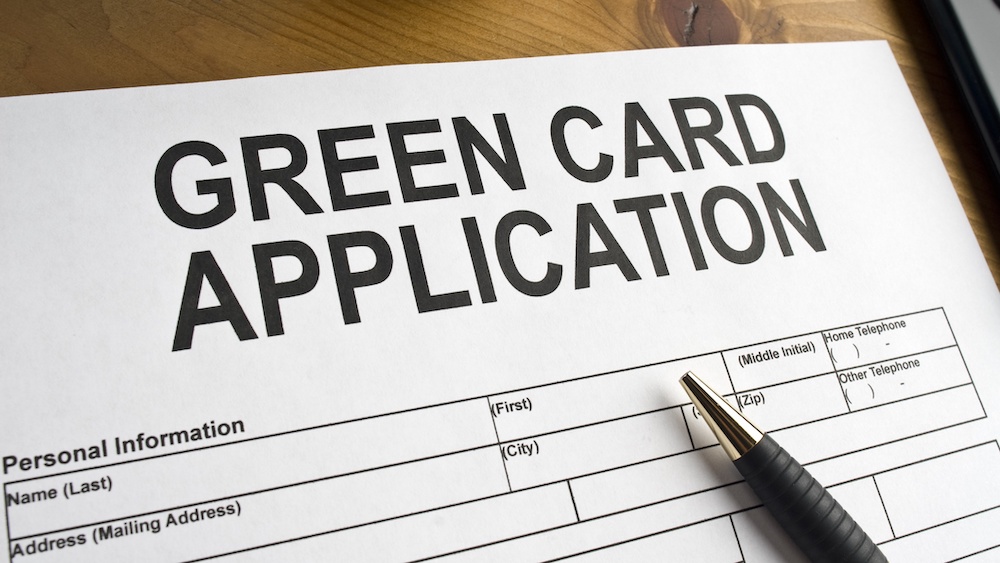If you’re interested in sharing your opinion on any cultural, political or personal topic, create an account here and check out our how-to post to learn more.
Opinions are the writer’s own and not those of Blavity's.
____
After 21 years and almost six months of statelessness and uncertainty, I can officially and legally call the United States of America my permanent residence. Simply put, as of June 24, I have become what we call a "Green Card holder.”
On hearing this news, my U.S.-born college girlfriends sighed with relief: “Finally! It’s about time.” This is the sense of relief I share with all who know me.
The Liberian Refugee Immigration Fairness Act of 2019 (“LRIF”) is the best relief that has ever happened to Liberians in the United States since the end of the long Liberian civil war, which spanned from 1989 to 2003. LRIF offered a glimmer of hope to Liberians seeking solace in the United States as a form of protection and a pathway to citizenship. After so many years of living under the shadow of uncertainty, I feel immense gratitude to my fellow Liberians — and our friends — who fought for decades to make LRIF a reality.
Liberians have long called the United States home. In fact, many Liberians considered themselves American due to our historical connection. Liberia was founded and settled by freeborn and formerly enslaved Americans in the early 1800s. In essence, Liberians in the U.S. are returning home, and LRIF is our welcome home ticket.
However, as great as LRIF is, it has two flaws: a strict deadline of December 20, 2021, which will undermine the purpose of the legislation, to grant relief to around 10,300 Liberians who were living in the United States prior to November 20, 2014, and a prohibitive filing fee of $1,225.
The deadline is one hurdle that can easily be eliminated without taking away from the beauty and generosity of the act. Deadlines only exacerbate an already depressing humanitarian crisis. In most cases, due to language barriers, cultural differences, the confusing immigration system and poverty, it takes an immigrant three to six months to learn about a relief and another three to six months preparing to ask for the relief. In essence, time is never on the immigrant’s side.
For people struggling to make ends meet following one of the worst global pandemics, the $1,225 filing fee serves as a financial hurdle for many. Liberians with a temporary immigration status, like Temporary Protected Status (TPS), withholding of removal or Deferred Enforced Departure (DED), are likely to work in low-paying jobs. The inability to pay was exacerbated by the COVID-19 pandemic.
Eliminating the extended filing deadline and reducing the fee will go a long way in bringing relief to Liberians who desperately need this program.
My U.S. citizenship journey started when I landed at New York LaGuardia Airport on December 30, 1999, as an international student on an F-1 visa. I arrived in pursuit of higher education, at Indiana University-Bloomington. I stayed in pursuit of freedom, liberty and happiness, after graduating college.
But little did I know that this pursuit would lead me close to the edge of despair and back again. There were days I felt there was no hope in sight, many sleepless nights, the hustle years of unemployment and creativity and two years of semi-homelessness (but for friends, I would’ve been on the streets). Then came temporary relief, which brought with it the yearly trips to the DMV for a new driver’s license because my status was granted on a yearly basis. LRIF could be the path to freedom, liberty and happiness for so many of us, if given the time.
In closing, I must beat the proverbial West African drum that is beaten loudly and clearly for all to hear. So, to all my people, please, please spread the word, and prop up your fellow Liberians to apply for their freedom and dignity in the U.S. Let’s make sure all 10,000 eligible Liberians submit their applications. You can find all the information on LRIF at the UndocuBlack Network LRIF information page.
The drum has been beaten to spread the message of social justice and equality throughout the Liberian villages of the United States. This is our time.
